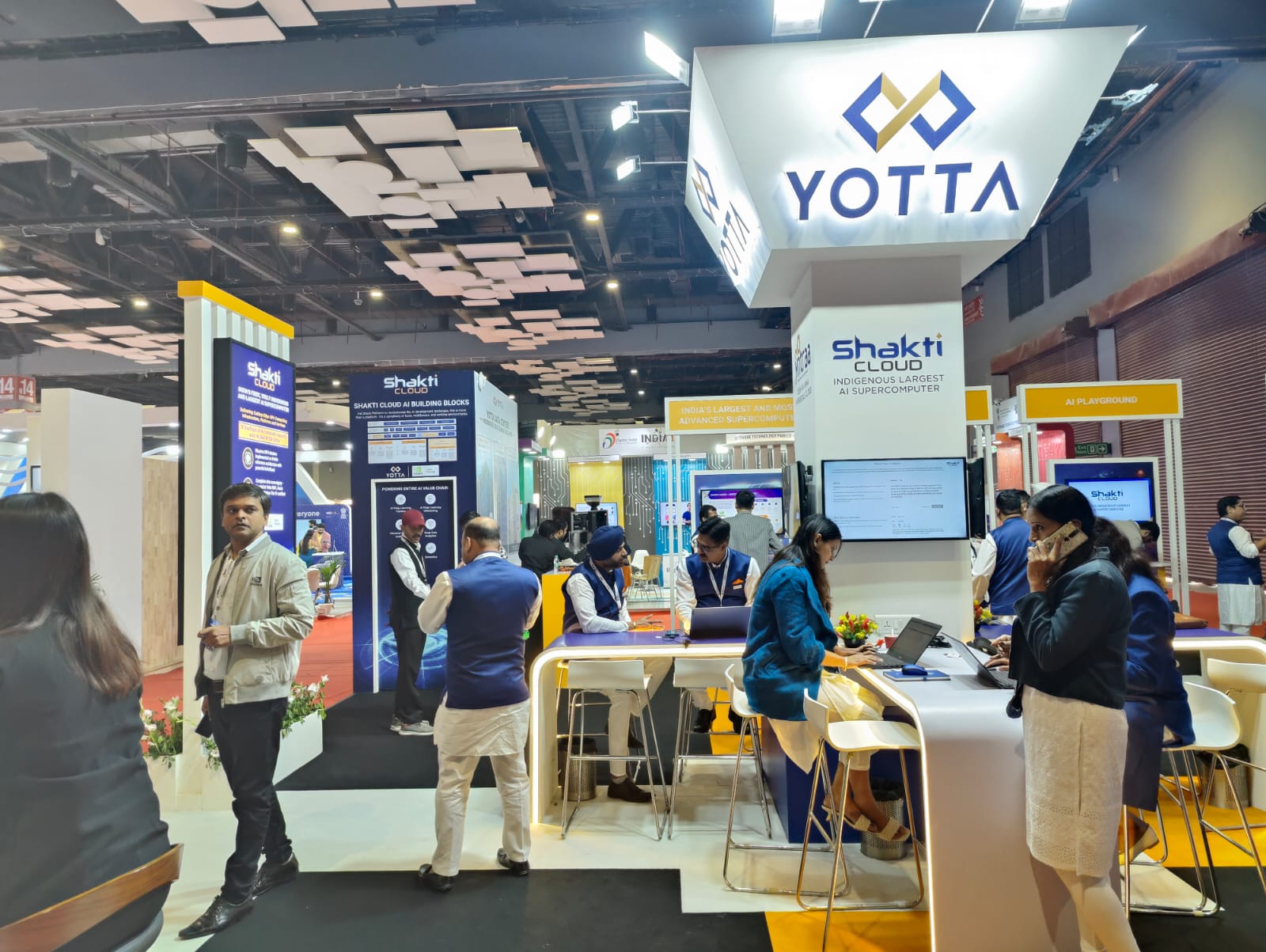News
India authorises 10 central agencies to monitor any computer; sets off political storm

NEW DELHI: Ten central agencies have been authorised by the government of India to intercept information from any computer, a move that set off a political storm Friday with the opposition accusing the government of trying to create a “surveillance state”
But the Centre said the rules for intercepting and monitoring computer data were framed in 2009 when the Congress-led UPA was in power and its new order only notified the designated authority which can carry out such action
The opposition parties led by the Congress slammed the order as unconstitutional, undemocratic and an assault on fundamental rights and an attempt by the BJP government to convert India into a “surveillance state” by resorting to “snooping”, inviting a sharp response from the ruling party
In a strong defence of the government order, the BJP said it is legal with adequate safeguards and in the interest of national security, dubbing the opposition’s criticism as a “text book case” of speaking without any homework. The Centre also rejected the opposition’s charge of snooping
Congress chief Rahul Gandhi told Prime Minister Narendra Modi that converting India into “police state” won’t solve his problems and it only showed he is an ‘insecure dictator’
The order that authorised 10 central intelligence, security and tax agencies to intercept, monitor and decrypt all the data contained in “any” computer system was issued Thursday night by the ‘cyber and information security’ division of the Ministry of Home Affairs(MHA) under the authority of Home Secretary Rajiv Gauba
As a controversy erupted, the MHA issued a statement, saying the order was issued to prevent “any unauthorised use of these powers”
The new order “does not confer any new powers” to any security or law enforcement agency, the statement said, adding “each case” of computer interception, monitoring and decryption is “to be approved by the competent authority, which is the Union home secretary”
The 10 agencies notified under the new order are the Intelligence Bureau, Narcotics Control Bureau, Enforcement Directorate, the Central Board of Direct Taxes (for Income Tax Department), Directorate of Revenue Intelligence, Central Bureau of Investigation, National Investigation Agency, the Research and Analysis Wing, Directorate of Signal Intelligence (in service areas of J-K, North East and Assam) and Delhi Police commissioner
The issue of notification also rocked the Rajya Sabha where Leader of Opposition Ghulam Nabi Azad alleged that “undeclared Emergency has taken final shape” and “all federal agencies have been let loose”,
Finance Minister Arun Jaitley said the authorisation was given under 2009 rules and dismissed opposition’s charge of snooping
Jaitley said the opposition was playing with national security and “making a mountain where even a molehill doesn’t exist”
Congress leader Anand Sharma said the issue is serious as it is related to fundamental rights and “India will become a police state” with such “sweeping powers” to agencies to intercept information
Responding to the charge, Jaitley said it would have been better if the Opposition had obtained all information before raising this issue. He told the House that the rules under which agencies will be authorised to intercept information were framed in 2009 when the Congress-led UPA was in power
“So what you are doing Mr Anand Sharma is making a mountain where even a molehill does not exist
However, Azad retorted that there is no mention of national security in the order. “The BJP seems to think it has ownership rights over national security and it means nothing to us,” he said taking a swipe at the government.”
To this, Jaitley said, “These are elementary things. It is an authorisation order. The provisions of national security are written in Article 69…. You are playing with the security of the country. That is what you have done just now”
Since the Act has been in place these orders of authorisation are repeated from time to time, he said, adding that they can be used for interception in cases related to national security, disruption of public order, etc
Outside Parliament, CPI-M chief Sitaram Yehcury said the order was unconstitutional
The BJP government is converting India into a surveillance state through the order, Anand Sharma said with other opposition leaders by his side
“It is the ultimate assault on fundamental rights and the right to privacy. It is also in direct conflict with the Supreme Court judgement that right to privacy is a fundamental right. The government has done it by strength we collectively oppose it,” Sharma told reporters
The opposition parties, including the CPI(M), the Samajwadi Party, the Rashtriya Janata Dal and the Trinamool Congress, said they will collectively oppose the order
The BJP government, the opposition leaders said, was converting the country into a surveillance state
“From Modi Sarkar to stalker sarkar, clearly the string of losses has left the BJP government desperate for information,” the Congress said on its official Twitter handle
According to the order, the 10 central probe and snoop agencies are now empowered under the Information Technology (IT) Act for computer interception and analysis
The agencies, according to the order, have been authorised “for the purpose of interception, monitoring and decryption of any information generated, transmitted, received or stored in any computer resource under the said Act (section 69 of the IT Act, 2000)”
In the statement, the Home ministry said adequate safeguards are provided in the IT Act, 2000 and similar provisions and procedures already exist in the Telegraph Act along with “identical safeguards”
“The present notification is analogous to the authorisation issued under the Telegraph Act. The entire process is also subject to a robust review mechanism as in case of Telegraph Act. Every individual case will continue to require prior approval of Home ministry or state government. MHA has not delegated its powers to any law enforcement or security agency,” it said
The ministry used Rule 4 of the IT (Procedure and Safeguards for Interception, Monitoring and Decryption of Information) Rules 2009 to elaborate its point
It provides that “the competent authority may authorise an agency of the Government to intercept, monitor or decrypt information generated, transmitted, received or stored in any computer resource for the purpose specified in sub-section (1) of Section 69 of the Act”, the ministry said
Therefore, it said, the latest order has been issued “in accordance with rules framed in year 2009 and in vogue since then and no new powers have been conferred to any of the security or law enforcement agencies”
Law Minister Ravi Shankar Prasad said the order is legal and the comments by opposition leaders amounted to playing with national security
Prasad said the IT Act, which has provisions for such an interception, was brought by the Congress-led UPA dispensation, and the latest order has only made it more accountable by naming designated agencies which can carry out such an interception
“The UPA had enacted the law. We have made it accountable,” he said
Responding to privacy concerns, he told reporters that the government will protect privacy but there can be no compromise with national security
The ministry statement also said the new notification had three benefits
It is aimed at among other things ensuring that any interception, monitoring or decryption of any information through any computer resource is done in accordance with due process of law.
Source: Press Trust of India
News
Yotta’s Cloud Data Center in GIFT City, Gujarat goes live

NEW DELHI: Yotta Data Services, an end-to-end Digital Transformation service provider, has announced that its state-of-the-art data centre facility, “Yotta G1”, located in GIFT city, Gandhinagar is ready for service (RFS).
The opening of this data center marks the debut of Yotta in Gujarat and progresses the company’s mission to provide digital services in India’s high-growth markets.
G1 is Yotta’s fifth data center facility in the country. It joins four large operational data centers, two of which, at Navi Mumbai and Greater Noida are part of hyperscale campuses. Yotta G1 is uniquely located inside the International Financial Services Center (IFSC) zone of Gandhinagar’s Gujarat International Finance Tec-City (GIFT city).
G1 represents an investment of more than INR 500 cr. over five years across critical non-IT and IT / Cloud / AI compute infrastructure. The data center has a capacity of over 350 high-density racks and 2 MW power (which can be scaled further as per demand). The facility is designed to meet the most demanding digital needs of its customers, who may be located within GIFT City or anywhere in the world, by seamlessly delivering fault-tolerant facility infrastructure, high-performance Cloud compute and storage infrastructure, advanced physical and cyber security, unmatched connectivity, and steadfast sustainability.
For large global enterprises operating in the GIFT City IFSC zone, the G1 data center functions as a potential data embassy, whereby their data stored is subject to the laws and regulations of their home country, thus allowing them to maintain sovereignty over their data, even when stored in India. By storing data in a physically different location, global enterprises can ensure continuity of operations in case of major disruptions within their borders. The data center’s location also ensures compliance with the IFSC regulations, providing businesses in the zone with distinct advantages like free foreign exchange convertibility, a liberalised regulatory environment, and business-friendly policies. It also helps enterprises adhere to IFSC’s compliance requirements, including being mandated to host their data within the IFSC zone.
Commenting on the announcement, Darshan Hiranandani, Co-founder and Chairman, Yotta Data Services, said, “The state of Gujarat, with GIFT City, has been at the forefront of providing a viable and sustainable platform for global businesses to set up base in India. The setting up of the IFSC zone is a further testament to their vision for financial services companies. We are proud to support this vision of the Gujarat government with a state-of-the-art data center within the IFSC zone, providing the latest and best in cutting-edge technologies to help businesses set up and scale their businesses while also adhering to all regulatory requirements.”
Adding to this, Sunil Gupta, Co-Founder, MD & CEO, Yotta Data Services, said, “Yotta’s G1 marks a pivotal milestone in delivering high-end data center, Cloud, AI compute, storage, connectivity and cybersecurity services to enterprises both on a global and local scale in the Gujarat region. Besides serving the domestic enterprises within and outside GIFT City, our data center shall serve as a potential data embassy for global enterprises, enabling them to adhere to their respective country’s laws while offering a dependable and secure locale for offshore data storage.”
G1 data centre stands distinct in GIFT city for being a data center offering more than just colocation services. True to Yotta’s stature as the end-to-end digital transformation partner of choice for enterprises, G1 brings forth a suite of key features, ranging from advanced data security and customised business solutions to an indigenous hyperscale cloud offering, AI-GPU compute offering, state-of-the-art infrastructure, cybersecurity expertise, seamless integration with managed IT services, 24/7 customer support, cost optimisation, and an overall competitive edge.
This announcement follows on the heels of Yotta’s recent launch of its cloud services – Shakti Cloud and Yntraa Cloud. Powered by NVIDIA’s top-of-the-line GPUs, Shakti Cloud is India’s largest & fastest AI-HPC supercomputer, delivering cutting-edge GPU computing infrastructure, platforms, and services, including Infrastructure as a Service, Platform as a Service, and Software as a Service. Yntraa Cloud, on the other hand, is a truly indigenous hyperscale cloud platform at par with global cloud platforms, offering an exhaustive range of cloud products and services.
News
Optiemus Infracom joins hands with Corning International

NEW DELHI: Domestic contract manufacturer Optiemus Infracom has entered into a joint venture with US-based speciality glassmaker Corning International to set up India’s first manufacturing facility for producing high-quality finished cover glass parts for the mobile consumer electronics industry.
The collaboration between both the companies will help expand India’s electronics manufacturing ecosystem, as the Indian government strengthens its Make in India initiative. As a part of the joint venture, the companies strategically aim to set up a world-class manufacturing facility in India, powered by cutting-edge technologies and processes.
Driven by a shared commitment to innovation and technological excellence, this collaboration will pave the way for the manufacturing of “Made in India” finished cover glass parts for use in mobile consumer electronic devices, and other cover glass applications, to meet the needs of next-generation mobile consumer electronic devices.
The joint venture signifies a powerful synergy between Optiemus’s deep domestic industry and manufacturing knowledge of electronics and telecom market and Corning’s globally-acclaimed expertise in advanced glass technology. By combining these strengths, the joint venture aspires to not only establish cover glass manufacturing capabilities and capacity in India, but also to contribute significantly to the creation of jobs and skill development within India’s thriving technology sector, the companies said in a statement.
Ashok Kumar Gupta, Chairman, Optiemus Infracom, said, “It is a matter of great pride for us to actively contribute to the growing manufacturing ecosystem in the country. With this joint venture, initiated in line with the vision of Hon’ble Prime Minister of India of ‘Make in India’ programme and the “Atmanirbhar Bharat” initiative, we are committed to make available world-class high-quality products for global and local brands.”
“Embarking on this new journey, we intend to emerge as one of the top manufacturers of finished cover glass parts for use in mobile consumer electronic devices in the next five years. Our collective expertise in innovation, design, and manufacturing, will provide holistic solutions for the brands,” Gupta added.
5g
MediaTek Catch-up with Tech: Infinix Zero 30 5G with Dimensity 8020 launched

NEW DELHI: Chipset maker MediaTek, which claims to power more than two billion connected devices every year, hosted ‘Catch-up with Tech’ in collaboration with handset brand Infinix on August 28 to share insightful and engaging conversations about the new-age smartphones and innovative technologies powering everyday lives.
The meet-up threw the spotlight on the MediaTek Dimensity Auto, Satellite solutions and Generative AI along with an extensive showcase of newly-launched Infinix Zero 30 5G powered by MediaTek Dimensity 8020, Infinix GT 10 Pro powered by MediaTek Dimensity 8050, and Infinix QLED TV powered by MediaTek.
In terms of specs, the Infinix Zero 30 5G is tailored for young storytellers and creators, featuring the first-ever smartphone to deliver 4K 60fps video recording from its 108 MP OIS rear camera and ultra-high resolution 50MP front camera. The Zero 30 series powered by MediaTek Dimensity 8020 is said to be a game changer for the front camera vlogging experience along with being the slimmest curved AMOLED smartphone in the segment with glass and a vegan leather back panel. It also claims to be one of the most premium-looking devices in the segment.
The event witnessed a panel discussion moderated by Anuj Sidharth, Deputy Director Marketing & Corporate Communications, MediaTek and included expert panelists from Infinix, MediaTek and two renowned professional photographers.
“With the fifth edition of Catch-up with Tech, we aim to bring consumers closer to the technology and enable them to make informed buying decisions based on their diverse needs. In collaboration with Infinix, this meet-up is in-line with MediaTek’s vision of technology democratization and making innovative technology accessible to everyone,” said Anku Jain, Managing Director, MediaTek India. “The MediaTek Dimensity 8020 in Infinix Zero 30 5G brings faster displays, brilliant cameras and ultra-fast performance. Further, MediaTek Imagiq technologies enrich the capture experience by combining dedicated AI, imaging processors and accelerators to provide incredible results,” he added.
Anish Kapoor, CEO, Infinix Mobile India, said, “Featuring India’s first 50MP 4K 60 fps video recording, Infinix Zero 30 5G is primed to redefine smartphone imaging capabilities, setting a new standard for the creators and vlogging enthusiasts. Our collaboration with MediaTek has played a pivotal role in shaping our exceptional smartphone portfolio, and the Zero 30 5G stands as evidence of our unwavering commitment to innovation and delivering unmatched experiences to our users. The display and design of the device represent a leap forward in smartphone technology. As Infinix Zero 30 5G hits the shelves, we are positive that our customers will find this new offering as exhilarating as we do, further empowering creators to capture their story like never before.”
Radhakrishnan Chakyat, a photography evangelist, founder and host of Pixel Viilage, said, “Infinix Zero 30 5G smartphone powered by MediaTek Dimensity 8020 chipset has amazing hardware features, an excellent camera, dual-view video mode and is primed for optimal content creation and saves a tremendous amount of editing time.”
Aarzoo Khurana, a wildlife photographer, said, “Over the last few days, I clicked various pictures and recorded a few videos with the newly-launched Infinix Zero 30 5G powered by MediaTek Dimensity 8020, and the experience has been truly inspiring. Infinix’s smartphone’s OIS feature helps content creators click shake-free pictures and the front camera, which is extremely sharp and detailed, enables content creators to click countless selfies.”





